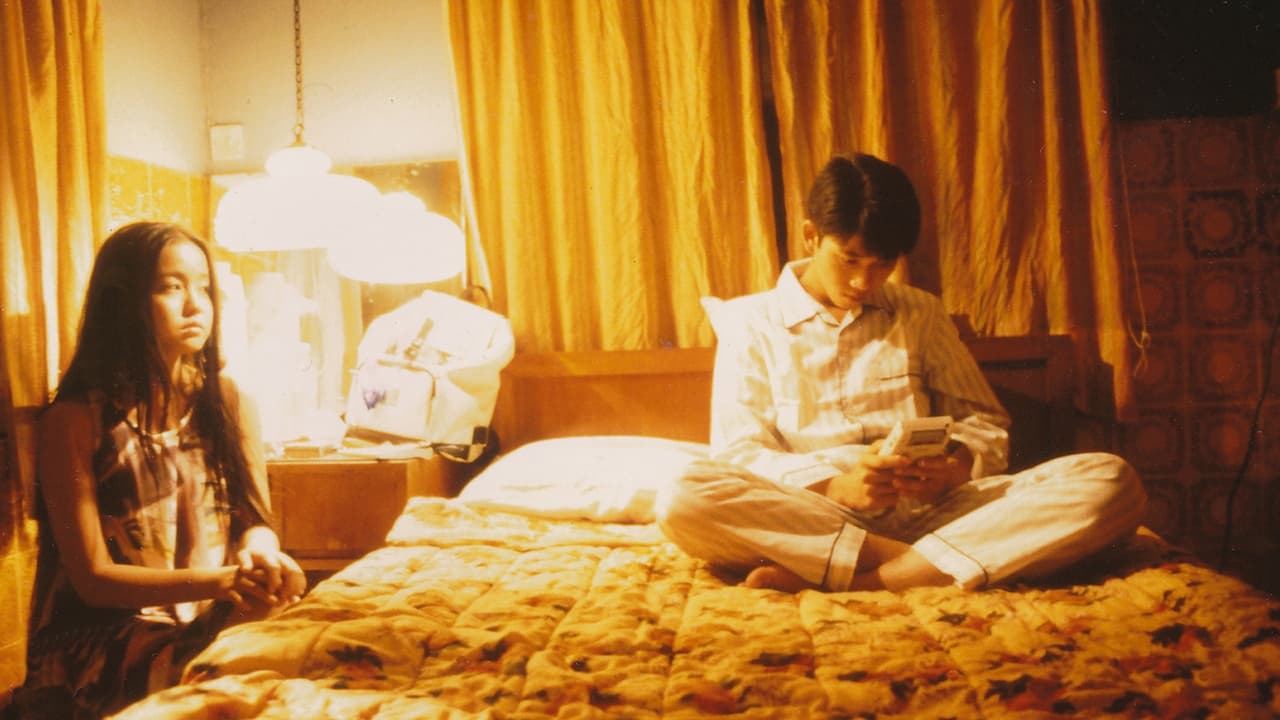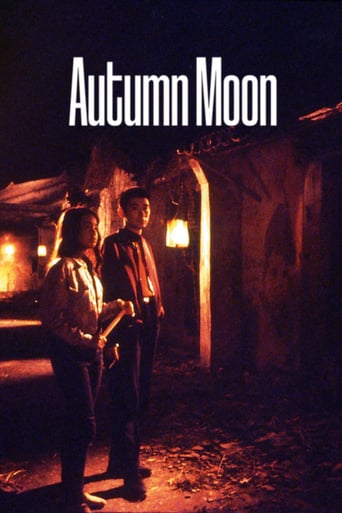



Don't listen to the negative reviews
The story-telling is good with flashbacks.The film is both funny and heartbreaking. You smile in a scene and get a soulcrushing revelation in the next.
View MoreUnshakable, witty and deeply felt, the film will be paying emotional dividends for a long, long time.
View MoreIt is encouraging that the film ends so strongly.Otherwise, it wouldn't have been a particularly memorable film
View MoreClara Law's Autumn Moon explores modern urban alienation in a suitably sterile and lifeless Hong Kong. Law's shots of Hong Kong (and the surrounding areas) are the highlight here as she creates an appropriately otherworldly mood and imbues her cityscapes with a strange beauty. She also succeeds in creating some interesting characters, particularly with the film's central duo, Tokio, a burnt out Japanese tourist who seduces women out of habit but is unable to satisfy his urges and Li, a fifteen year old student preparing to move with her brother and parents to Canada. Law emphasizes the transiency of these characters whose shared culture consists of only the English language and the cuisine of McDonalds, which a naive Li holds forth as the height of Chinese traditional fare and a world-weary Tokio insists is the same in Hong Kong as it is in London and Toronto. Ultimately the two characters find a measure of satisfaction as Tokio discovers the Chinese tradition he seeks and confronts his own past while Li gets her first taste of romance and begins to accept her own inevitable departure. The film ends with the characters triumphantly shooting fireworks as they have learned to find joy in small measures, much as Law herself finds beauty in the very urban desolation she critiques.
View MoreThis is an unusually subtle and beautiful film about the migrant experience. In small but resonant ways it explores themes of memory, identity and tradition both at the level of the culture and of the individual. In some ways it reminds me of _Hiroshima mon amour_, a much better known film on similar themes which may be a useful reference point for anyone who is not sure what to expect from this film.Some of the simplest images in this film are also its most powerful: there's poignancy in something as unremarkable as a shot of the contents of a refrigerator, or in a young girl's distress at being told that her cherished local McDonald's is not a "traditional restaurant". It's not that the film is merely nostalgic, however. It's more about what it means to be poised in the instant between a meaningful past and an unknowable but very different future. At the very heart of the film is an unforgettable soliloquy by an old woman about her wishes for her descendants.This is not a film that everybody will be able to relate to. But for the increasing number of us who find ourselves displaced from old certainties, it is gratifying, haunting and challenging to see a film like this one.
View MoreThe situation is simple: a young Japanese man, about 25, from Tokyo (and called Tokio) comes to Hong Kong in search of cheap consumer goods, sex, and, above all, good Chinese food. He accidently meets a 15 year old, Li Piu Wai, and immediately develops an unlikely, offbeat friendship with her that borders on soul matehood. Luckily she lives alone with her grandmother who is a superb cook, a natural feeder, and who asks no questions. They communicate in somewhat pained English, as he knows no Chinese and she no Japanese. Director Law carefully shows that each has their own separate romantic and/or sexual world apart from the other. She with a Chinese high school student and he with an older Japanese woman he meets. To me, the separate relationships were more interesting that the one between Li Piu Wai and Tokio which had its moments but which also rang false fairly often, even irritatingly so at times. I still liked the film but not as much as I might have.One interesting thing was that while it showed Hong Kong vividly (sometimes through Tokio's recently purchased video camera--which he should take back since it seems to only shoot in monochrome), it was a Hong Kong with almost no people in it. I don't remember there ever being more than 4 people on screen at once and that was rare: a singular approach to teeming Hong Kong.
View More